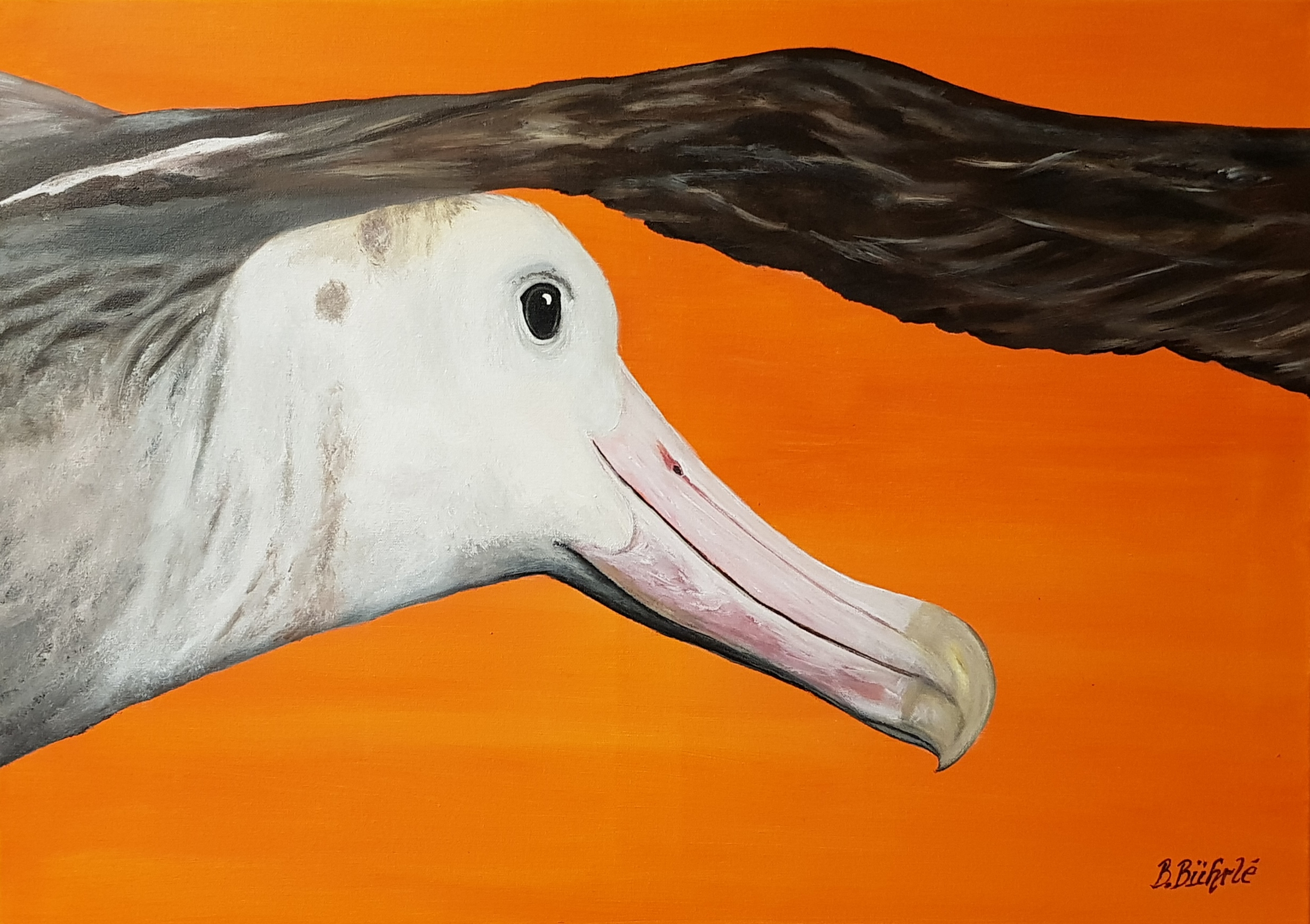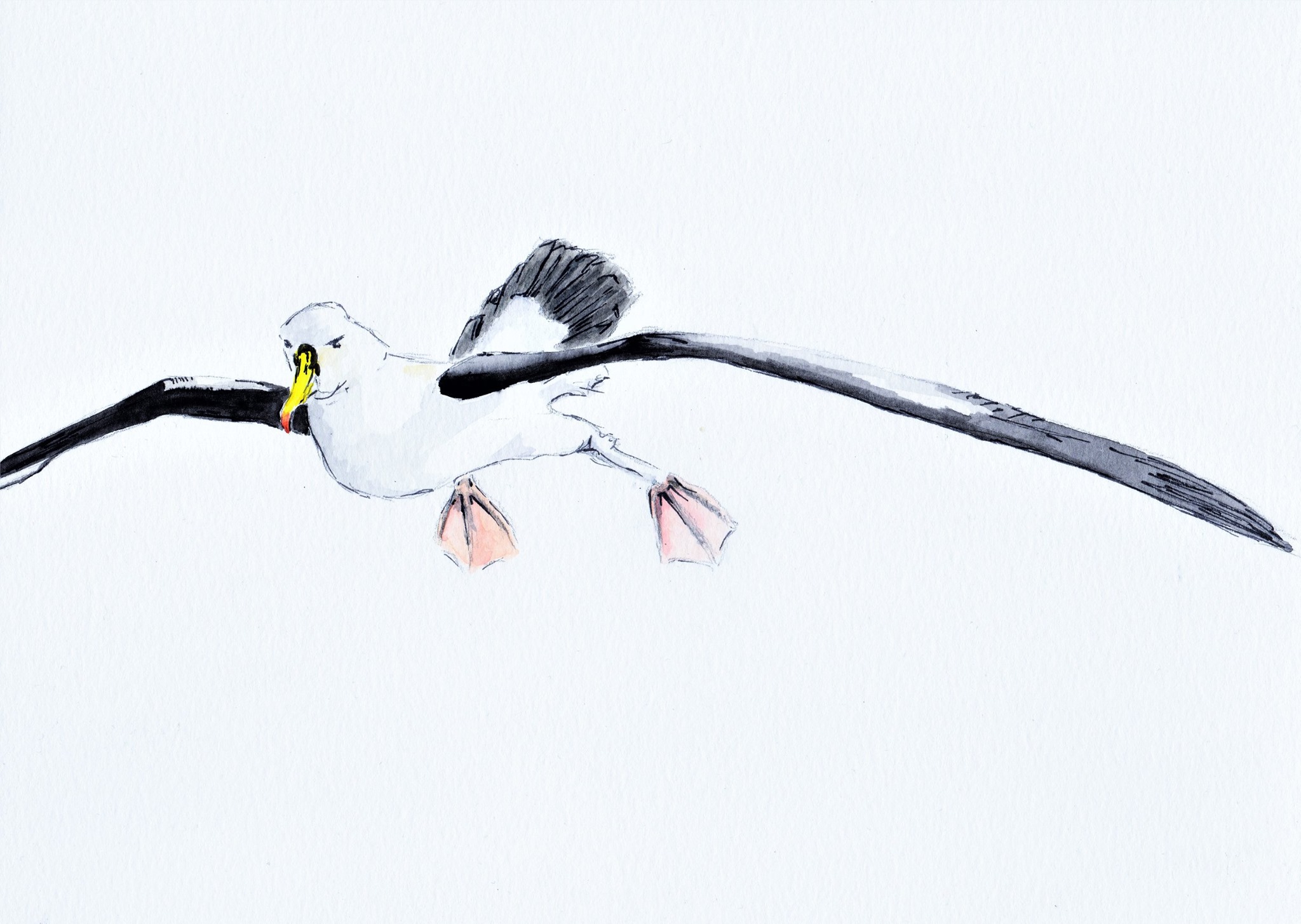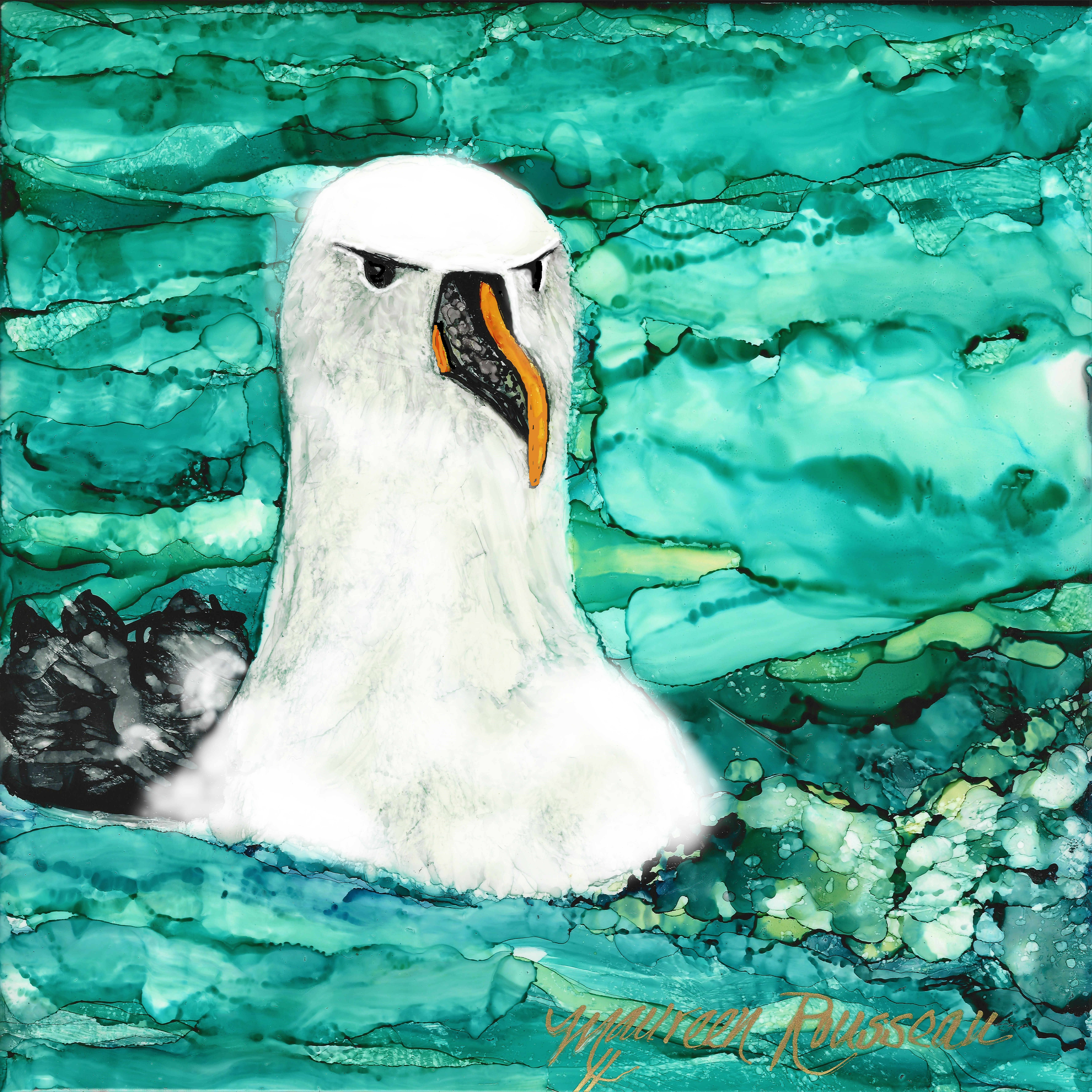 Amsterdam Albatross by ABUN artist Birgit Bührlé for World Albatross Day, 9 June 2020, after a photograph by Kirk Zufelt
Amsterdam Albatross by ABUN artist Birgit Bührlé for World Albatross Day, 9 June 2020, after a photograph by Kirk Zufelt
The Agreement on the Conservation of Albatrosses and Petrels (ACAP) is pleased to announce “Effects of Disease” as its theme for this year’s World Albatross Day (WAD2025), the sixth to be held, on 19 June 2025.
This year’s theme continues the tradition of featuring specific threats that albatrosses (and ACAP-listed petrels) face. It follows on from the inaugural theme “Eradicating Island Pests” in 2020, “Ensuring Albatross-friendly Fisheries” in 2021, “Climate Change” in 2022, “Plastic Pollution” in 2023, and Marine Protected Areas” in 2024.

Indian Yellow-nosed Albatross by ABUN artist Lea Finke for World Albatross Day, 9 June 2020, after a photograph by Kirk Zufelt
Two new albatross species are being used to feature the theme for this year’s World Albatross Day, with a photographic competition, posters, infographics and artworks produced by Artists and Biologists Unite for Nature (ABUN). They are the Endangered Amsterdam Albatross Diomedea amsterdamensis, endemic to France’s Amsterdam Island, and the Endangered Indian Yellow-nosed Albatross Thalassarche carteri, that breeds on islands in the southern Indian Ocean This latter species is particularly at risk from Pasteurella multocida that causes avian cholera and Erysipelothrix rhusiopathiae (causing erysipelas) on Amsterdam Island, where its breeding population has been decreasing. It is also intended to produce an infographic that depicts the sequential spread of Highly Pathogenicity Avian Influenza (HPAI) H5N1 virus to islands of the Southern Ocean.

Indian Yellow-nosed Albatross by ABUN artist Maureen Rousseau for World Albatross Day, 9 June 2020, after a photograph by Kirk Zufelt
WAD2025 will draw on ACAP’s 13-member Intersessional Group of Experts on Epidemiology, Disease Risk Assessment and Management (the HPAI Group) to guide it in featuring this year’s disease theme. To this end, it will work closely with Patricia Pereira Serafini, Co-convenor of the Agreement’s Population and Conservation Status Working Group (PaCSWG) and lead member of the HPAI Group.
13 February 2025, updated 17 February 2025

 Español
Español  English
English  Français
Français